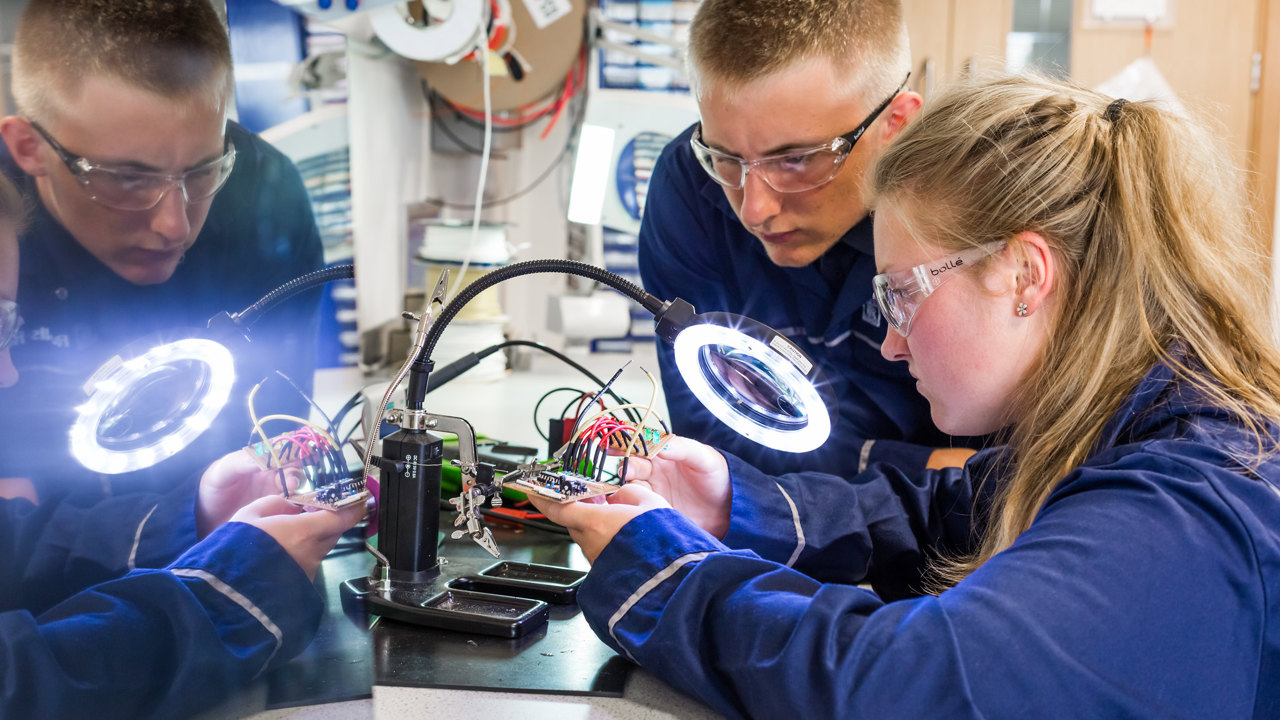
James Gordon
Public Affairs Adviser, EngineeringUK
James has worked in public affairs for the past three years, including the past year at EngineeringUK. He is passionate about developing education and skills policy that can open up new opportunities for underrepresented groups. James is responsible for driving forward EngineeringUK’s engagement with policymakers, helping to ensure that STEM education and skills remain at the forefront of the Government’s agenda, whilst also supporting wider policy activity.
Policy and public affairs round-up: September 2025
By James Gordon, Public Affairs Adviser
This blog is the first in a new series of bi-monthly policy round-ups from EngineeringUK’s policy and public affairs team. Each round-up will provide highlights from our recent policy and public affairs activity and government publications, plus look ahead to upcoming news, events, and areas of focus for the team.

Tracking government strategies
We’ve been kept busy over the past couple of months with the government publishing a trove of strategies, not least the long-awaited Industrial Strategy and corresponding sector plans. These set out a formal approach for the next 10 years based on 8 high growth sectors, many of which are reliant on jobs in the engineering footprint. We welcomed its recognition of the important role engineering and tech skills have in underpinning multiple sectors. However we also advocated for a wider engineering and technology workforce strategy to ensure joined-up thinking across government. Read our full reaction.
Alongside this, the government also published a new 10-year Infrastructure Strategy in June. This sets out how it plans to invest £725bn in economic and social infrastructure over the next decade, as announced previously in the Spending Review 2025. Our submission to the Spending Review, sets out our spending priorities for STEM education and skills.
Meanwhile, Skills England published a series of sector skills needs assessments. Each assessment identifies current skills shortages and models how demand is likely to increase over the next 5 years for the priority sectors. We were also pleased to see a recognition of the importance and cross-cutting nature of engineering skills in Skills England’s assessment of priority sector skills needs to 2030.
Consultation responses and policy priorities
In recent months, we have submitted evidence to a range of consultations by government, parliamentary bodies, political parties, and groups in the broader policy landscape. Whilst we can’t publish all submissions, they include evidence to the Public Accounts Committee on the challenges in the roll-out of T Levels and the how to recruit and retain more STEM teachers. We also submitted evidence to the Shadow Science, Innovation and Technology team highlighting the pivotal role of the engineering and technology workforce to ensuring that the UK remains a world leader in science and tech.
Our team have also updated our policy priorities for government, to reflect the progress of the Labour government in its first year in office. Our recommendations are focused around calls to action on strategic workforce planning and a holistic STEM education and skills strategy.
We are pleased to have been actively feeding into the development of the Independent Curriculum and Assessment Review and the Post-16 Education and Skills Strategy, both overseen by the Department of Education. As both reports near publication in the autumn, we look forward to digesting and engaging with their recommendations.
Driving gender diversity
At the end of last year, EngineeringUK, together with BCS, the Chartered Institute for IT, Royal Academy of Engineering, Women’s Engineering Society (WES) and Women into Science and Engineering (WISE) formed the Gender pathways collective. The aim of the collective is to identify interventions to increase the number of girls in education pathways to engineering and technology at age 18. The collective has brought together over 40 organisations to date and has established 6 task and finish groups to drive collective impact.
On behalf of the collective, we wrote a joint letter to the Education Secretary in July. This called on the government to adopt four strategic approaches to improve girls' engagement in engineering and technology through curriculum reform. Our next steps will be to collate the recommendations generated by the task and finish groups and disseminate these to policymakers and industry.
If you would like to find out more about the collective’s work, please do get in touch with us.
Spotlight on foundation apprenticeships
As Parliament returns from summer recess this week, we’re looking ahead to a busy autumn term. This kicks off with the publication of our new report on foundation apprenticeships in engineering and technology this week.
The report sets out 7 criteria which we believe must be met to ensure that foundation apprenticeships become a viable pathway into engineering and technology for young people. These are based on an analysis of DfE data, a literature review, and a series of roundtables and interviews with employers and providers in the sector.
Among other recommendations, we encourage the government to learn from the successes and shortcomings of previous programmes. They can do this by building in evaluation, and if necessary iteration, from the outset of the roll-out of foundation apprenticeships.
Party conference season
Also taking place this autumn – we will be attending the Labour, Conservative and Liberal Democrat party conferences. EngineeringUK will be sponsoring events at the Labour and Conservatives alongside fellow members of the National Engineering Policy Centre (NEPC). We are looking forward to hosting a panel discussion at the Labour Party Conference in Liverpool, ‘Engineering a green and prosperous future: How home-grown innovation and skills can deliver the Industrial Strategy's growth ambitions’. The panel will take place on Monday 29th September from 09:00 to 10:15 at the ACC Liverpool. We will also be sponsoring a closed roundtable at the Conservative Party Conference on a similar theme.
Back with a bang
We’re delighted that EngineeringUK’s annual Big Bang at Parliament reception at the House of Commons will be taking place once again this autumn. As in previous years, we will host teams of talented young people from across the UK who will present their innovative STEM projects to Parliamentarians and industry. Stay tuned for further details on this.
Find out more about our Policy and Public Affairs team’s work
As Parliament returns from summer recess this week, we’re looking ahead to a busy autumn term. This kicks off with the publication of our new report on foundation apprenticeships in engineering and technology.
— James Gordon, Public Affairs Advisor, EngineeringUK




